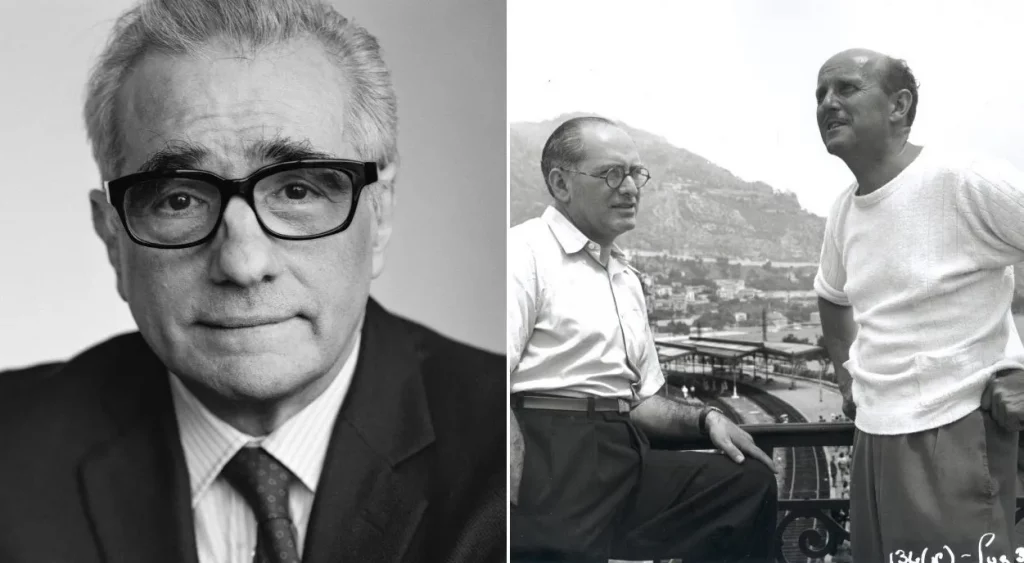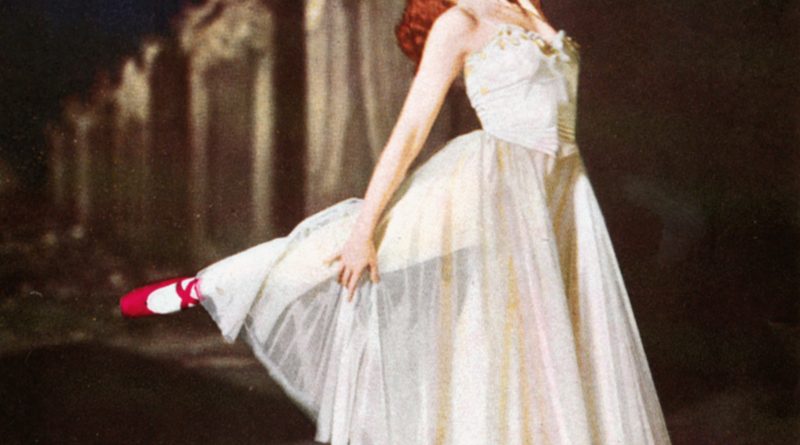Friday Film: Made in England – The Films of Powell and Pressburger
Film Genre: Documentary
Director: David Hinton
Produced and presented by Martin Scorsese
Release date: May 10th 2024
Imagine a dream film school where, one day, the guest professor, for the afternoon, is the greatest living director, Martin Scorsese. Imagine that for two hours and 10 minutes of that afternoon he takes you through the films of a British director and his Hungarian writing partner with such eloquence, love and reverence that you want to run out of the lecture theatre and watch every single frame the pair ever filmed.
That’s how I felt after the documentary Made in England: The films of Powell and Pressburger.
I haven’t seen a film so riveting for a long time. It’s two hour + run time passes in a glorious flash of cinematic magic on screen, so beautiful, at times, it brings a lump to your throat, with a narration that adds its own brilliance in such a way that you wonder if you’ve really understood any film you’ve ever watched until now. Certainly, it’s made me want to rewatch every scene of the few Powell and Pressburger films I have seen, so that I can view them through the lens of everything new I’ve learnt from Mr Scorsese.
Michael Powell isn’t a household name like Alfred Hitchcock or David Lean when it comes to old time directors but his genius is every bit as great. His influence as immense. He and Emeric Pressburger came together in one of those, surely destined, unions which produce lasting art of a calibre that enthuses, inspires and fires up the creativity of generations after them. The pair worked together for almost 20 years under the banner of their production company The Archers. Pressburger would write the basic script and create the story and structure for a film. Both would contribute to the dialogue. Powell would then provide the dynamo of action and direction. They never argued. “We discuss everything and after about three or four hours he sees that I’m right“
quips Pressburger at one point, his Hungarian accented English a low key foil to the almost but not quite cut glass English of Powell. The latter, in turn, describes their collaboration as being one based on love. He adds that no collaboration can really be sustained without that love. Even after professional disagreements, when they went their separate ways, the pair never spoke badly of each other and remained friends throughout their lives.
Towards the end of his career when he could no longer get projects off the ground, Powell did not have enough money to properly heat his cottage in Gloucestershire and so took to living in a small caravan in his garden. That’s where a young , up-and-coming director from New York called Martin Scorsese first met him. Scorsese told him how much his work had influenced him and his friends back in America such as Francis Ford Coppola and Brian DePalma. Powell said very little in response to Scorsese‘s quickfire questioning. But he later wrote in his autobiography, how deeply moved he was by that encounter. He would later move to America and end up marrying Scorsese’s longtime collaborator, editor Thelma Schoonmaker.
Scorsese had become mesmerised by the films of Powell and Pressburger at a young age. As a boy, suffering from asthma and unable to go out and play with the other children, he first saw their films on a small television set in his home.The first one he watched was The Thief of Baghdad. “Every image filled me with wonder, the colour, the lighting, the sense of music, all enthralled me.”
He went on to see many more of their films, watching each one, obsessively, over and over. The influence of so many of the films can be seen in his own work. There’s a fascinating sequence in Made in England in which,on a split screen, you see the images from Powell and Pressburger’s The Red Shoes and The Life and Death of Colonel Blimp, which inspired Scorsese’s Taxi Driver and Raging Bull. Another theme from Colonel Blimp inspired Scorsese to make The Age of Innocence because he wanted to explore as did the Powell/Pressburger film, the repressed emotions of love between two people who shouldn’t be in love. Blimp, incidentally, was chosen to be the first ever Royal command film performance. There’s incredible footage of the huge crowds outside the Empire cinema in Leicester Square waiting for the Royal family and the stars of the film at the premiere. Another of Powell and Pressburger’s later films The Battle for the River Plate was similarly chosen for Royal viewing at another command performance in 1956. The footage from that premiere includes the famous meeting between Marilyn Monroe and the young Queen Elizabeth II.
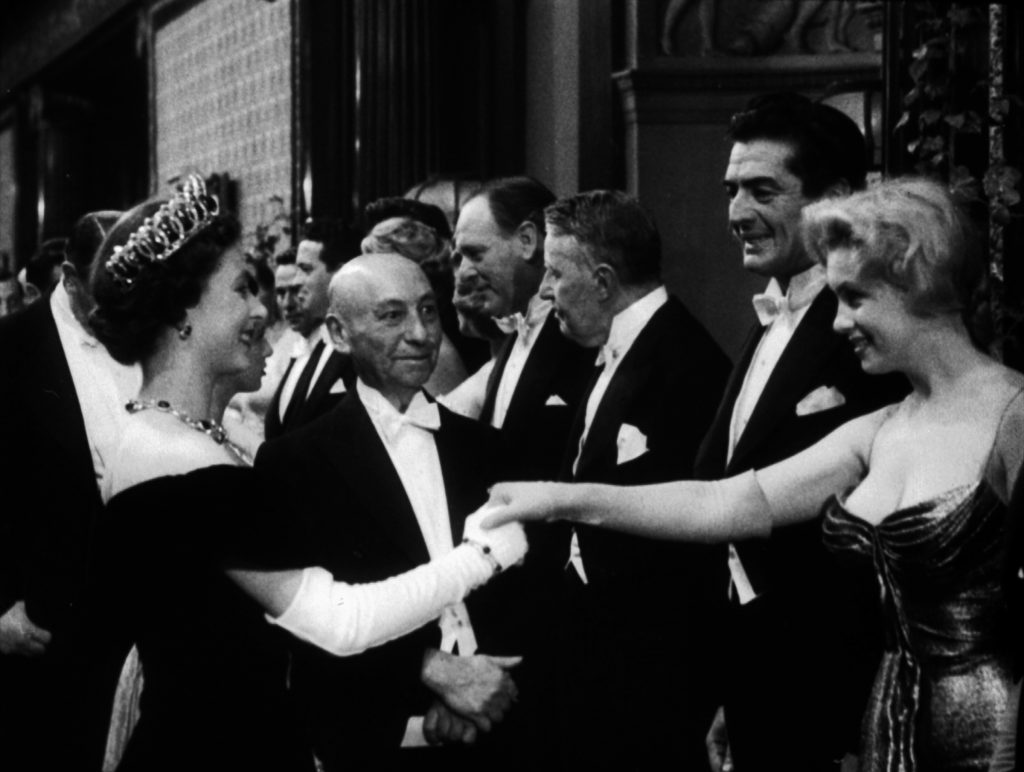
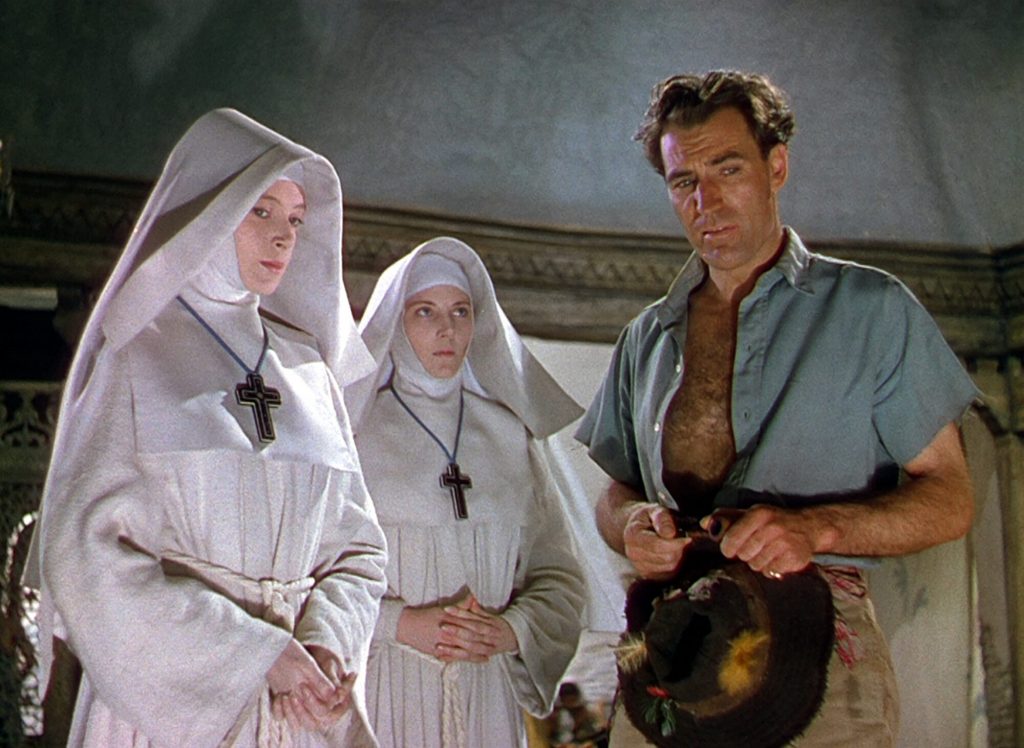
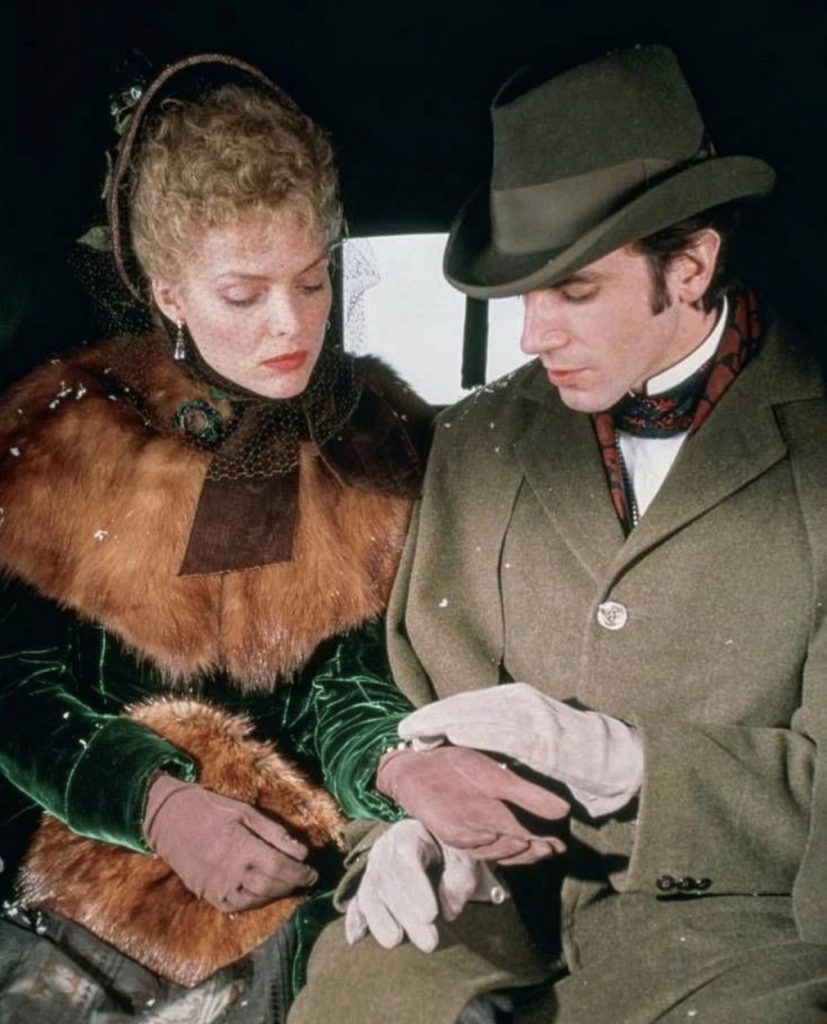
As you’d expect, Powell and Pressburger’s two most famous films, the enchanting and ravishingly beautiful The Red Shoes and the compellingly melodramatic Black Narcissus feature heavily in the documentary. Scorsese describes The Red Shoes as ‘the ultimate subversive commercial film.’ Despite its success and the high regard in which it is held, he says it’s not a comforting film, it’s complex and disturbing, not least in its depiction of art being something worth dying for. Deciding to put a 15 minute ballet sequence into the film was a bold move that paid off, as did the equally brave, pivotal sequence in Black Narcissus in which there’s no dialogue for 10 minutes leaving the menacing music to forcefully accompany the emotions of the characters and create the vivid intensity of a hallucination. The film’s theme of stifled sexual desires and which eventually erupt in its thrilling climactic scene made the film a big hit when it was released and keeps it on ‘best ever film’ lists.
But the duo’s lesser-known and less successful films are also delved into. A Canterbury tale is particularly evocative of a bygone era and the premise that connection to our history is essential to our spiritual well-being. It’s a theme that comes up often in their films; that the voices of the past will help you make sense of your present.
Scorsese says that when he watched the films of Powell and Pressburger, as a child “I was so bewitched by them ….. they make up a big part of my films’ subconscious.”
Made in England: The Films of Powell and Pressburger is every bit as bewitching as the work it explores of two of cinema’s titans.
5/5
